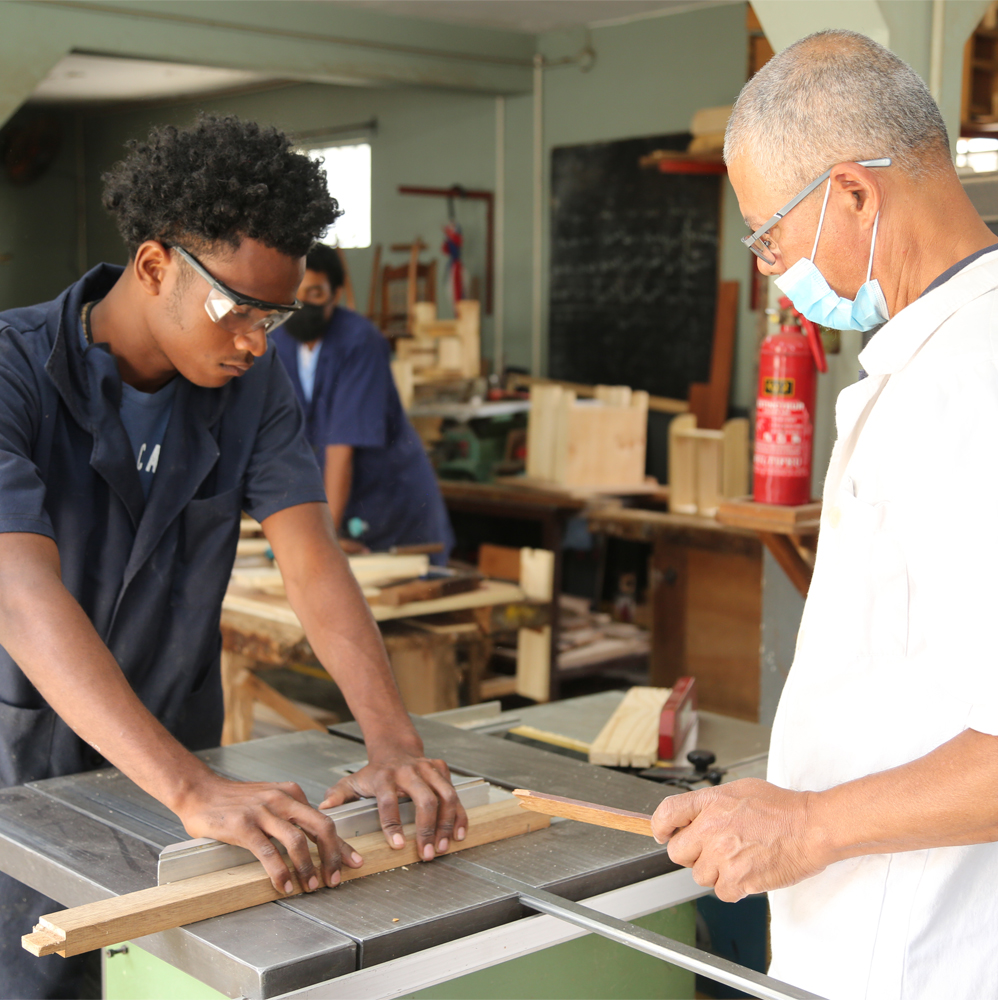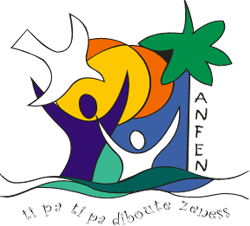
History
In 2000, on an initiative of UNICEF, 4 non-governmental organizations (NGOs) working with adolescents who were failing in school decided to join forces to form a network.
Adolescent Non-Formal Education Network, said ANFEN, was born. Today, it is a dynamic network made up of 22 NGOs in Mauritius and Rodrigues, which each year provides non-formal education to around 1,000 vulnerable adolescents who are outside the traditional school circuit.
During the seminars and workshops organized during the creation phase of the ANFEN network, the members voted for the non-formal approach, which over the years has proven to be the most appropriate formula for adolescents who are failing at school at primary level in the traditional public system (called “mainstream”).
The non-formal approach relies on interactivity in learning, as students actively engage in the process by reinvesting their knowledge of each subject. Their experience thus serves as a starting point for any new acquisition.
Since its creation, ANFEN’s priority has been to improve the quality of the programs offered to these young people:
By developing adapted pedagogy and psychosocial accompaniment, to ensure learning and integral development of our vulnerable youth within non-formal education structures.
By devising employability strategies to improve the teaching and learning of school dropouts so that they secure employment
Values
Love
A team of people who put their heart in their job as they understand that love is fundamental in our humanitarian mission.
Respect
Accept, acknowledge and value differences and the unique contribution of every team member.
Active listening
A team that’s willing to give full attention to every team member and to any idea so we can develop an excellent co-working spirit.
Team spirit
People with their own individuality and talents sharing resources and uniting strengths, overcome challenges together to attain our objectives.
Commitment
Persevere through the organization’s mission, vision and values to achieve short-, medium- and long-term results
Mission
To support and empower our members in their efforts to integrate early school dropouts back into society.
Vision
To ensure that our adolescents become responsible citizens.
Objectives
Access to education and training
Ensuring that the “Right to Education” as stipulated by Article 28 of the Convention on the Rights of the Child and the SDG 4 are respected with a special focus on adolescents with learning difficulties and psychosocial issues.
Quality education
-Adapting teaching methodologies to improve learning outcomes and the quality of education and training for learners requiring special support.
– Improving learning capacities of learners through a psychosocial accompaniment
Employability
Equipping learners with relevant knowledge, skills and right attitudes for future learning, personal wellbeing, employability, socio economic integration and contribution towards sustainable development.
Network Capacity Building
Providing training and support to our Centres so that they are able to better accompany their beneficiaries
Culture
We value a growth mindset culture. we believe in your talents and in those to be unleashed. Hard work, good strategies and feedback or input from others help all of us develop more skills set and expertise. In the non-profit industry we must adapt to changes and to challenges related to the mission/cause, the strategies, the financial resources, the internal & external partners and the beneficiaries. The journey is tough and requires learning and progress, which explains why we cannot overfocus on productivity, but still remain serious about it.
We reward efforts, learning and progress. We believe that the right culture drives performance. A growth mindset culture will push each employee to develop more technical, interpersonal and strategic thinking skills through interactions. Subsequently, the whole team reaches the daily, weekly, monthly and yearly targets in the best interest of beneficiaries. Our culture is to reward you for becoming a better team member.
We are focused on team spirit, teamwork and group performance. We have understood with experience that a job statement is a guide to enable the team member and the organization to move towards the same direction. However, the organization deals with many unforeseen circumstances and faces many variations during the implementation of projects. With the right team spirit, a staff walking the extra miles helps the management to understand more how to adjust itself to have more positive impact. As a team we can plan together a work-life balance strategy to make sure that the experience is satisfactory and rewarding.

STEPHANIE HA-YEUNG

KOOMAREN VADEEVALOO
Team Members
Leadership team
Pedagogy team

MARIE-ANGE ETIENNE

ROSEMAY LUFOR
Psychosocial team

SAMINTA ARJOON

CATRIONA MAVISA

QUEENCY POLIDOR DUVERGE

NADINE PARIS

ANIELLE PERRINE

JONATELLE POUDREUX

SYLVIE VENKATA SUBHADU

SYLVIE M MARGUERITTE

FEROZAH SOBRATTEE
Employability team

Khema Bhantooa

Tania Mootoo

PROSPER MOTELINE

MALA BALGOBIN

BERTHA CHY MEY WAN FOOK CHUEN

KALYANEE AUROOMOOGUM

